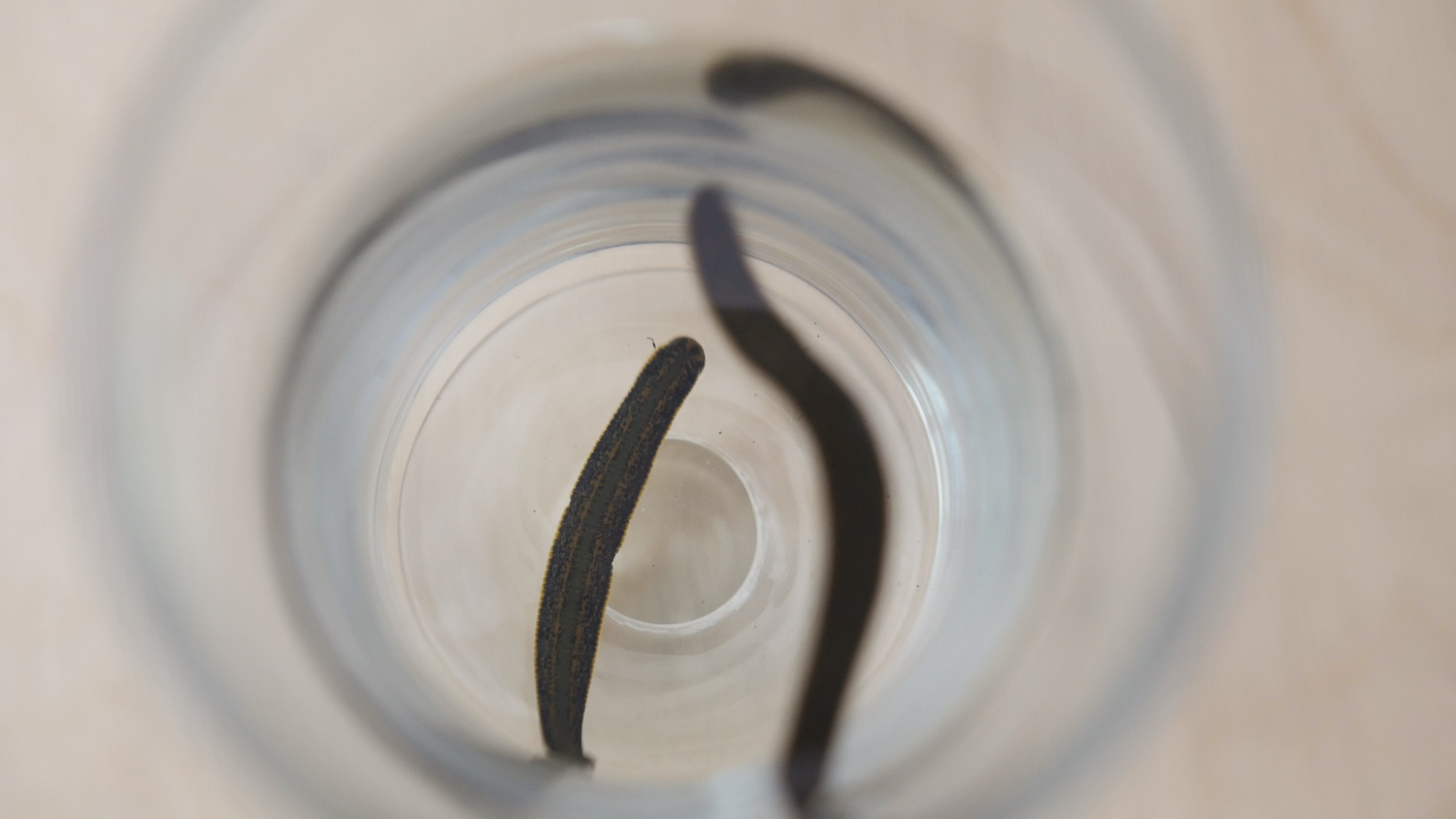Leech therapy is a natural method for treating various health ailments using leeches. The beneficial properties of leeches have been known since antiquity, partly due to the belief that a significant portion of diseases is caused by “corrupted blood” and that only bloodletting with the help of leeches would restore health. The development of medicine in the 20th century led to the abandonment of such practices, and leeches were forgotten for some time. The isolation of valuable compounds from the mucous glands of leeches caused leech treatment to come back into favour.
In the past, leeches from the natural environment were used for bloodletting. Such leeches fed on the blood of various hosts, including those infected with viral or bacterial diseases, making their application dangerous to health. Currently, leeches used for treating people come from sterile laboratory breeding, which does not mean there are no contraindications for their use.
Leeches and pregnancy
Although many years of observation have shown that leeches do not pose a threat to the fetus, they should not be applied to pregnant women. This is due to substances contained in the secretion of salivary glands, hirudin compounds, which can affect the course of developing pregnancy and, in some cases, even lead to miscarriage. Pregnancy is also a contraindication because post-therapy complications from infections caused by leech-induced wounds may require treatment contraindicated during pregnancy, which could endanger it. Similarly, treatment using chemical drugs, which would be necessary in case of an Aeromonas hydrophila infection that leeches can cause, should be avoided.
Leeches and haemophilia
An absolute contraindication to using leeches is haemophilia. Haemophilia is a blood disease characterised by a congenital lack or deficiency of blood clotting factors. In people with haemophilia, when a blood vessel is damaged, there is a problem with forming a clot, prolonging bleeding time. Compounds contained in leech saliva lead to blood thinning, which is undesirable in people with haemophilia who already have problems with it. Individuals with other blood diseases related to a deficiency of clotting factors should also refrain from leech therapy.
Leeches and anaemia
Leech therapy is not performed in cases of severe anaemia. Anaemia, otherwise known as low blood count, is a pathological condition in which the number of erythrocytes (red blood cells) or the amount of haemoglobin contained in them is insufficient for proper oxygenation of tissues. Symptoms include energy loss, easy fatigue, and general weakness.
Although adverse effects after leech therapy are rare, they can be very dangerous to health. One of many is difficult-to-stop bleeding, leading to a decrease in haemoglobin and hematocrit levels and directly causing anaemia.
During one therapy session using leeches, haemoglobin level can be decreased by 0.7mg% in individuals without disease burdens. The haemoglobin value before the procedure should be higher than 10 mg.
Leeches and the use of anticoagulants
Therapy involving leeches should not be used in people taking anticoagulants, non-steroidal anti-inflammatory drugs, and platelet aggregation inhibitors. Relative contraindications include derivatives of anti-aggregation non-steroidal medicines, including aspirin. Compounds in chemical drugs and those injected by the leech can enhance their effect and enter into dangerous interactions. In such cases, leech therapy may be conducted only after a break lasting at least a week. Otherwise, bleeding from the wound caused by the leech may last up to 48 hours. This is because the secretion of salivary glands of leeches already contains anticoagulants. In the right amount, they limit the formation of clots, but too much of them can cause the opposite effect to the intended one.
Leeches and hypotension
PC-LS is the most crucial factor secreted by the leech’s salivary glands, which regulate blood pressure. It acts as a regulator of arterial blood pressure – raises too low and lowers too high. Furthermore, histamine contained in the secretion of salivary glands leads to the dilation of blood vessels, lowering blood pressure. Therefore, hypotension, a condition with lower blood pressure than 80/60, is a contraindication to leech therapy. Almost always, patients experience a drop in pressure along with accompanying dizziness and general weakness after a leech therapy session. Therefore, blood pressure should be measured for the patient during and after the leech therapy session. For the same reasons, leeches should not be applied to women during menstruation, patients with high temperatures, or individuals with general weakness.
Leeches and allergies
An undesired effect of leech therapy can be numerous allergic reactions. Patients with allergies often exhibit hypersensitivity to compounds from the salivary glands of leeches. Patients allergic to proteins should not use therapy involving leeches, as severe attacks have been observed. Typical symptoms manifesting an allergy include skin changes and, in extreme cases, even anaphylactic shock. In exceptional situations, such as after plantations in allergic patients, leech therapy can be used, but with simultaneous administration of antihistamine drugs. In such a case, drugs should be taken before, during, and after treatment.
Other contraindications for using leeches
Like other therapeutic methods, leech therapy has limitations and can cause side effects. In addition to the contraindications mentioned above for using leeches, caution in leech therapy should also be exercised in the case of:
- existing erosions and bleeding from the digestive system;
- immunosuppression occurring in carriers of the HIV and after chemotherapy;
- the presence of certain cancers;
- children below the age of 10;
- patients with mental disorders.
The person conducting the leech therapy session must have knowledge and experience in this field. Before proceeding with the procedure, they should interview the patient to determine if any contraindications prevent treatment. Often, a few days or weeks before the procedure, there may be a need to modify doses or discontinue taking medications. That’s why it’s so important that proper treatment is preceded by a control visit, during which the specialist assesses the patient’s health condition and answers all their questions, thereby dispelling any doubts.

